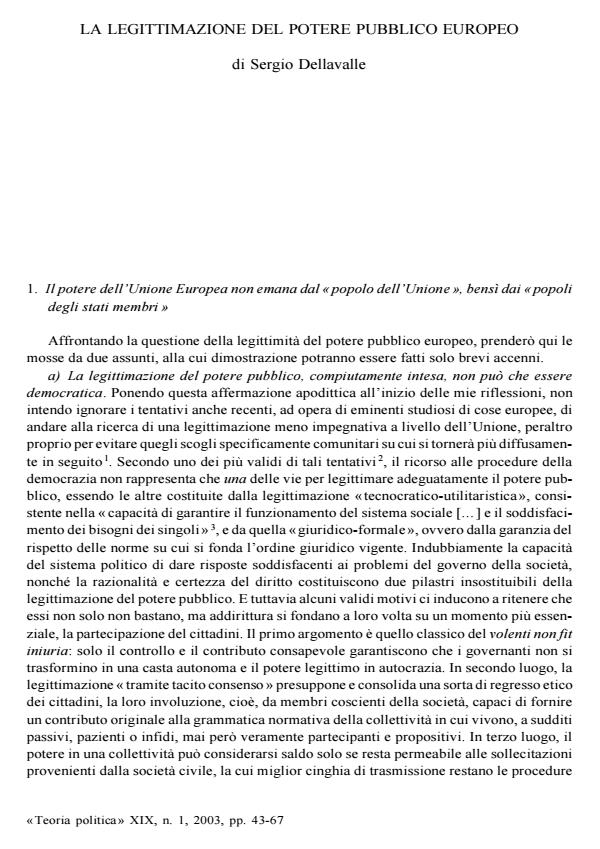La legittimazione del potere pubblico europeo
Journal title TEORIA POLITICA
Author/s Sergio Dellavalle
Publishing Year 2003 Issue 2003/1
Language Italian Pages 25 P. File size 91 KB
DOI
DOI is like a bar code for intellectual property: to have more infomation
click here
Below, you can see the article first page
If you want to buy this article in PDF format, you can do it, following the instructions to buy download credits

FrancoAngeli is member of Publishers International Linking Association, Inc (PILA), a not-for-profit association which run the CrossRef service enabling links to and from online scholarly content.
The essay analyses the foundations of the legitimacy of the EU institutions’. Moving from the assumption that the well-intended legitimacy of public power can only be a democratic one, the a. argues that after the creation of the Communities a partially autonomous public power has grown, which is neither directly derived from the institutions of the member states nor shows any tendency to decrease. Traditionally, nation-states assured the legitimacy of such power by inserting in the fundamental law adequate formulations stating the derivation of the public power from the people. Nothing similar is given for the Union. The lack of any reference to a European people, can eventually be explained in two different ways: first by the non-necessity of such a reference because of the unbroken legitimating process which would grow up from the democratic institutions of the member states to the bodies of the Union; second by the self-contradiction which would affect the very concept of a European people. Dellavalle rejects both arguments suggesting that a full democratic legitimacy of the European institutions by European citizens and specifically European bodies (i.e. in particular by the Parliament), along with the legitimacy still coming from the member states, is both possible and desirable.
Sergio Dellavalle, La legittimazione del potere pubblico europeo in "TEORIA POLITICA" 1/2003, pp , DOI: